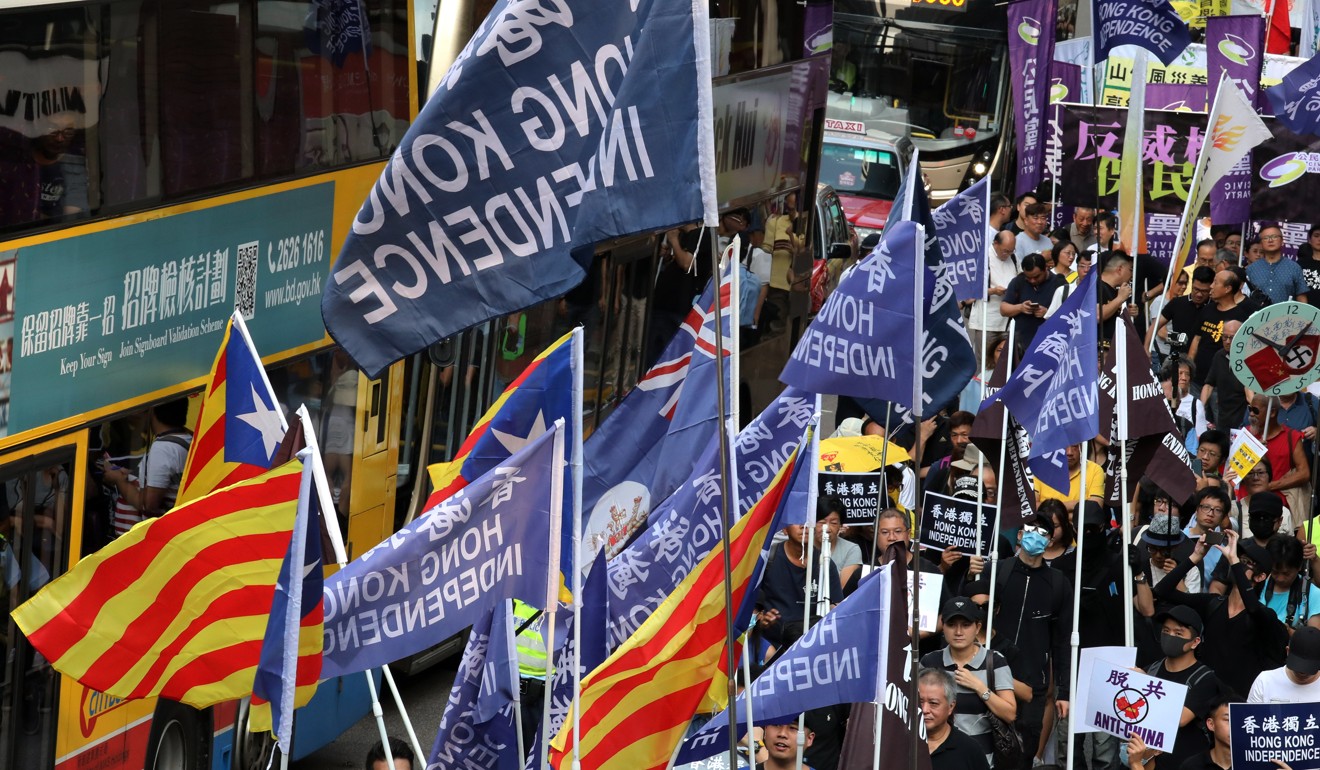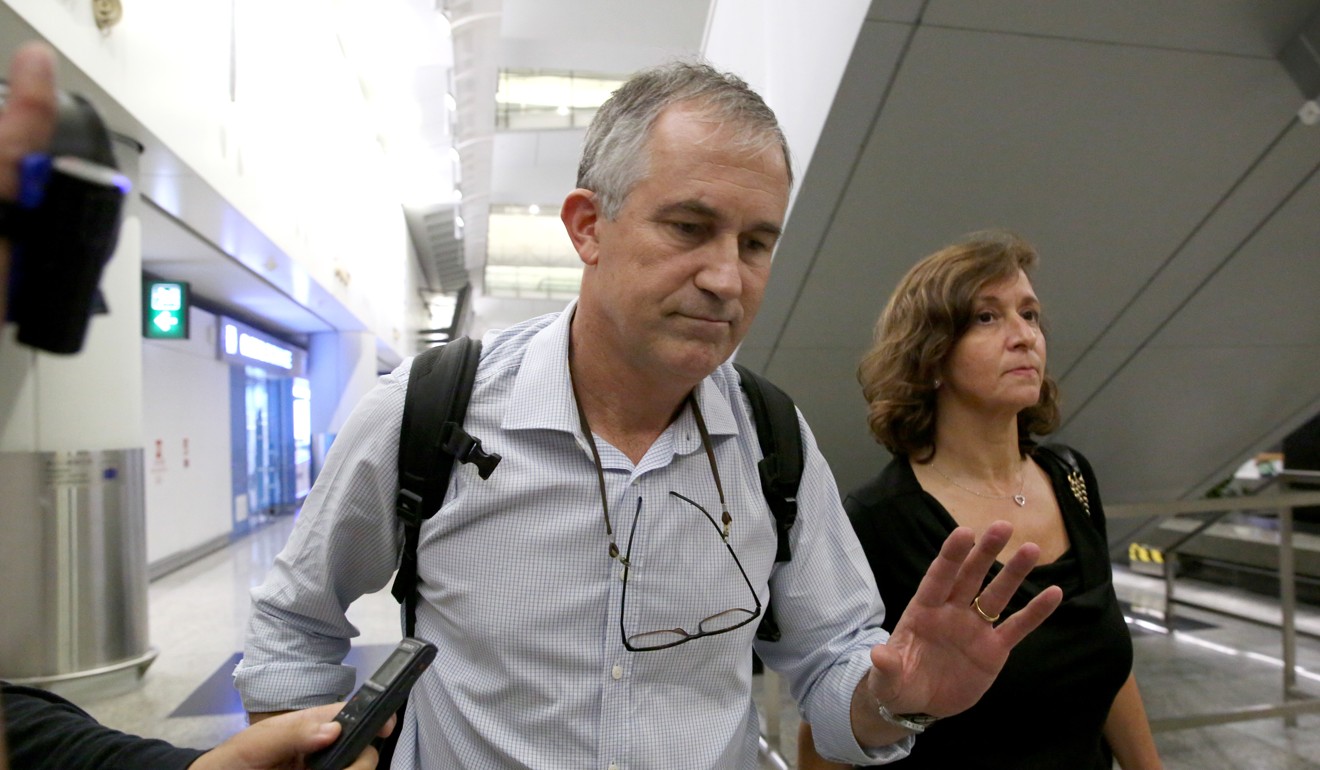
Hong Kong’s freedoms will not be curbed, but city cannot be used as anti-China base, top Beijing official says
Hong Kong and Macau Affairs Office director Zhang Xiaoming reinforces ‘zero tolerance’ towards issue, and says warnings reflected central government’s long-standing policy on matter
A top Beijing official in charge of Hong Kong affairs has sought to reassure the city that the central government has no intention of curbing its freedoms, and recent warnings against the city being used as an anti-Communist Party and anti-China base merely reflect a long-standing central government policy.
Hong Kong and Macau Affairs Office (HKMAO) director Zhang Xiaoming told a delegation of senior news executives from the local media on Thursday that both the central and local governments must exercise “zero tolerance” when dealing with calls for the city’s independence, which crossed the “red line” of undermining Chinese sovereignty.
“It is nothing unusual for state leaders to send out kind reminders that Hong Kong should not be used as an anti-China and anti-Communist Party base,” delegation leader Siu Sai-wo quoted Zhang as saying.

Zhang recalled that late paramount leader Deng Xiaoping had emphasised this point as early as 1982, and stressed in 1987 that Beijing could not allow Hong Kong to turn into a base of opposing the mainland under the cloak of democracy.
“The central government never intends to change the political system in Hong Kong, but some people in Hong Kong still adopt an antagonistic attitude towards the mainland’s political system,” Zhang reportedly said.
Siu quoted Zhang as saying the fact that Hong Kong had yet to enact national security legislation under Article 23 of the Basic Law more than two decades after the city’s handover to China reflected its failure to implement the mini-constitution fully.
Hong Kong students cautioned about independence debate as academic year begins
Chief Executive Carrie Lam Cheng Yuet-ngor vowed in her second policy address to “fearlessly” punish independence advocacy using existing laws, while continuing to cultivate an environment favourable for introducing the contentious legislation against acts of treason, sedition and secession.
Lam has not given a timetable for moving on the legislation, given that the government’s last attempt to introduce it in 2003 had to be shelved after it prompted half a million people to take to the streets in protest, fearing their rights and freedoms would be curtailed.
Zhang was quoted as saying freedom must be exercised on the condition that it did not undermine national security.
“We can’t mix up those unlawful acts which go beyond freedom of expression and press freedom with those freedoms,” he reportedly said.
Zhang was speaking two days after Huang Kunming, head of the Communist Party’s Central Propaganda Department and a member of the Politburo of the Communist Party, told the same delegation he hoped the Hong Kong media would do its part to “prevent external forces from turning the city into a base for interfering with the mainland”.
Carrie Lam: I will defend press freedom but not allow advocacy of independence
The message was relayed by Siu in a late-night clarification on Tuesday after reports on Huang’s remarks were retracted by some local news outlets, sparking concerns about self-censorship in some quarters.
“[Huang] hopes Hong Kong media will not turn the city into a base for interfering in mainland politics,” Siu originally told local media after the meeting with Huang.

A source familiar with the meeting between Zhang and the delegation on Thursday said the HKMAO director had stressed that Hong Kong residents had been enjoying freedoms including that of speech and the press.
“Where else in the world can the people enjoy such a broad scale of freedom? The central government has never thought of curbing freedoms in Hong Kong,” Zhang was quoted as saying during his question-and-answer session with the delegation.
He reminded the delegation that calls for Hong Kong independence had crossed the “red line” set by President Xi Jinping last year.
When he oversaw Lam’s swearing-in as the city’s leader on July 1 last year, Xi warned Hong Kong against crossing the “red line” of undermining Chinese sovereignty and becoming a base of infiltration and sabotage activities against the mainland.
Zhang also expressed support for the local government’s refusal to renew Financial Times journalist Victor Mallet’s work visa, and the banning of the pro-independence Hong Kong National Party (HKNP).
Mallet’s visa application was rejected two months after he hosted a controversial talk at the Foreign Correspondents’ Club by HKNP founder Andy Chan Ho-tin.
Zhang also noted the role of his office had changed since the 1997 handover from “gatekeeper” to “guardian” of the city’s “one country, two systems” governing formula along with national security and sovereignty, as well as the development interests of the country.


